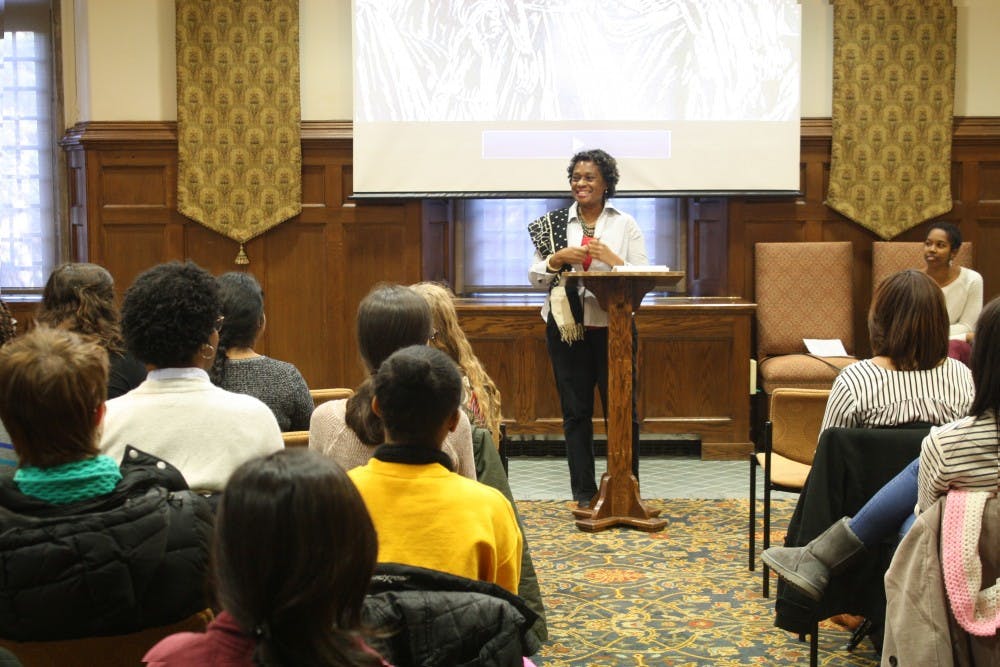Marion Bethel wants to turn up the volume on women’s history in the Bahamas through her documentary “Womanish Ways: Freedom, Human Rights and Democracy,” which was screened in the Brown-Alley Room on Wednesday as part of the WILL*/WGSS speaker series.
The documentary tells the story of the women who fought for their right to vote during the women’s suffrage movement in the Bahamas. Gabrielle Misiewicz, Westhampton College '11 and associate producer of the film, attended the screening along with Bethel, and they both participated in a question-and-answer session afterwards.
The documentary included anecdotes narrated by some of the family members and acquaintances of the women who had acted as key leaders in the movement, which lasted from the early 1940s until the 1960s. Some of the participants of the movement were interviewed as well, and they shared their inspiring stories.
Bethel said her motivation for this project came after the realization that there was a lack of female voice and representation in Bahamian history. She said that as she was growing up, she barely heard anything about the women who were fighting to accomplish civil rights in her country.
“I lived in the same community where they were living, and I didn’t know what they were doing,” Bethel said.
Bethel said she began working on the project in 2001, conducting research and interviews for her film. In 2011, Misiewicz joined Bethel upon returning to the Bahamas after graduation.
Misiewicz, who minored in women, gender & sexuality studies at Richmond, was interested in women’s suffrage before becoming involved with the documentary. She began her work in the project as a researcher, but her involvement continued beyond that role and she went on to become the film’s associate producer.
According to The Nassau Guardian, the documentary won the 2012 Award in Documentary at the Urban Suburban Film Festival in Philadelphia.
Christy Lightbourn, a Bahamian sophomore and WILL* member who was at the screening, said just like many other Bahamians, she had not learned about Bahamian women’s suffrage in her primary education.
“It’s great to have a Bahamian representation at this school and have the opportunity to learn about this movement,” she said.
After the screening, Bethel said the documentary had become a part of the high school curriculum in the Bahamas. She said this had been one of the most important accomplishments of the project so far.
“I never learned about Bahamian women rights in school,” Gloria Miller, a junior from the Bahamas who attended the screening, said. “Some of the schools in the Bahamas were named after the women mentioned in the documentary, and I didn’t even know who they were.”
Enjoy what you're reading?
Signup for our newsletter
Bethel said that although Bahamian women’s rights have gone a long way since the movement, there was still a lot of work to be done in terms of achieving equal rights in the Bahamas.
Women in the Bahamas still do not have the legal entitlement to pass Bahamian citizenship to their children, Misiewicz said, and there is currently a movement that seeks to educate the Bahamian public as to why that is an important right.
Contact reporter Maria Eugenia Fernandez at mariaeugenia.fernandez@richmond.edu
Support independent student media
You can make a tax-deductible donation by clicking the button below, which takes you to our secure PayPal account. The page is set up to receive contributions in whatever amount you designate. We look forward to using the money we raise to further our mission of providing honest and accurate information to students, faculty, staff, alumni and others in the general public.
Donate Now



